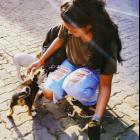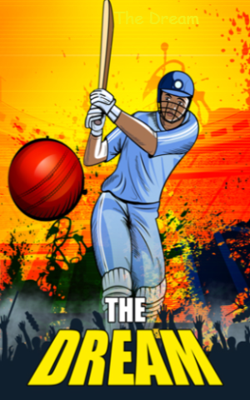Netaji and Basanti Devi's Work
Netaji and Basanti Devi's Work


Subhash Chandra Bose's mother Prabhavati Bose used to say to Basanti Devi, "You are Subhash's real mother, I am just a midwife."
Basanti Devi was the wife of national leader Chittaranjan Das.
Basanti Devi met Subhash Chandra Bose in 1917 at Presidency College after Otten Affair.
One night a group of boys came to meet Deshbandhu Chittaranjan Das at his house.
Deshbandhu was then a well-known lawyer. He protects the Bengali revolutionaries from the black laws of the British.
The students came to meet with Deshbandhu when he was taking dinner . At that time the servant brought the slip of the visitors.
Deshbandhu then told to bring them in his house . Basanti Devi told him not to bring the students to the dining room.
Deshbandhu still allowed the group of students to come in his home. One of them, in that group was Subhash Chandra Bose.
Basanti Devi first met Subhash Chandra that night.
Subhash Chandra Bose's age was then only 19 years.
Subhash Chandra Bose was then expelled from Presidency College because he was the leader of the student attack movement on British professor Edward F. Otten, whose arrogent behavior was hurting students.
A few years passed. In 1921. Subhash's resignation from the Indian Civil Service has caused a stir in India.
He had already informed his compatriot to Deshbandhu from England, and expressed his desire to join the freedom struggle. Subhash wrote, “You are the promoter of the National Service Program in Bengal. That is why I have come to you with my little education, talent, strength and enthusiasm."
When he reached Kolkata, he came to meet Deshbandhu. But Deshbandhu was not in Kolkata at that time . Basanti Devi was informed about that “Subhash Bose has come." She then said excitedly, "That Subhash Basu who has resigned from ICS!"
Subhash Chandra Bose & Basanti Devi talked for a long time that day.
That was the beginning of a special relationship. Subhash used to call Basanti Devi as 'Mother' for the rest of his life.
Whenever a disagreement occured between the Deshbandhu and the Subhash, Basanti Devi mediate them.
In a letter to the famous novelist Sarat Chandra Chattopadhyay, Subhash wrote, “Many people think that we follow him [Chittaranjan] blindly. I can at least say to myself that I have argued with him on countless questions. Our quarrels were settled through the mediation of the mother. ”
Deshbandhu was the first elected mayor of Calcutta in 1924, and wanted Subhash as the chief executive officer of the Calcutta Municipal Corporation (CMC).
Subhash Chandra immediately rejected the offer. He told Deshbandhu that he would not leave ICS to become the chief executive of CMC. Disappointed Deshbandhu took refuge to his wife - "Look, if you can. ”
After a heated exchange, Basanti Devi was finally able to persuade him to accept the post.
She told Subhash that there was no need to accept the salary received from Dhaka sources.
Subhash can give her that money. But money is needed for good deeds.
When Deshbandhu decided that his family's daughters would participate in the non-cooperation movement and court arrest, Subhash objected.
He thought that the girls would come forward only if the young men would be taken in prison, it was inappropriate to send them first.
But Deshbandhu was tenacious .
Basanti Devi again persuaded Subhash to change his mind. She even requested Subhash to take her to the place of Satyagraha.
Basanti Devi was quickly arrested. The incident instantly sparked outrage across Kolkata and whole Bengal. The government realized that a fatal mistake had been made by them.
Suddenly she was released in the middle of the night. The arrest of Basanti Devi caused great anger in the minds of the people.
Deshbandhu was very disappointed seeing his wife returning home suddenly.
Basanti Devi told her husband, “The police will not keep me in jail, nor do you want to keep me at home. Tell me where shall I go? ”
One day, Subhash Chandra arrived in Deshbandhu's house when the husband and wife were arguing. Seeing Basanti Devi coming back, Subhash cried uncontrollably. Basanti Devi turned her mind away from the argument and tried to calm Subhash down. She said she is fine. Netaji was a very emotional man. Thus, Deshbandhu called him ‘Crying Captain’. He did not stop making fun of his crying habits.
Basanti Devi also took part in various movements, following her husband Deshbandhu Chittaranjan.
She took part in the Civil disobedience movement and the Khilafat Movement and also participated in the Nagpur session of the Indian National Congress in 1920.
She established the "Nari Karma Mandir", a training center for women activists with Deshbandhu's sisters,, Urmila Devi and Sunita Devi.
On 10 th December 1921 when police arrested Subhash Chandra & Deshbandhu,, after that,, Basanti Devi took charge of Deshbandhu's weekly publication 'Bangalar Katha'.
She was the president of Bengal Provincial Congress in 1921-22. Through her speech at the April 1922 Chittagong conference,
she encouraged grassroot agitation. Travelling around India, she supported cultural development of arts in order to oppose colonialism.
Chittaranjan died in 1925. He died at the age of 54.
Although Subhash was overwhelmed at first, he later decided that being a student of Deshbandhu, he would have to take charge of Bharat Sadhin.
This time Subhash asked Basanti Devi to join the non-cooperation movement to play the leading role of Deshbandhu.
But Basanti Devi decided to move away from public life. Subhash repeatedly attempted to bring her into politics, but he was failure.
Also after the death of Deshbandhu Chittaranjan, Subhash came to meet with Basanti Devi.
Subhash Chandra considered Basanti Devi to be his "adopted mother" and she is considered to be amongst the four prominent women in Subhash's life, the other three being his mother Prabhabati, his sister-in-law Bibhabati (wife of Sarat Chandra Bose) and his wife Emilie Schenkl.
Basanti Devi was very sympathetic towards the revolutionary activists in the Indian independence movement.
In 1928, Indian freedom fighter Lala Lajpat Rai died days after being injured by the police in a baton charge against his peaceful protest march. Following this, Basanti Devi exhorted the Indian youth to avenge Lajpat Rai's death.
Post India's independence in 1947, Basanti Devi continued with social work. Basanti Devi College, the first women's college in Kolkata to have been funded by Government was established in 1959 and named after her.
In 1973, she was honoured with the Padma Vibhushan, India's second highest civilian award.
Hat's off to all that people who had given their lives for own mother land. My India is my heart.
✍ Atrayee Sarkar
































































